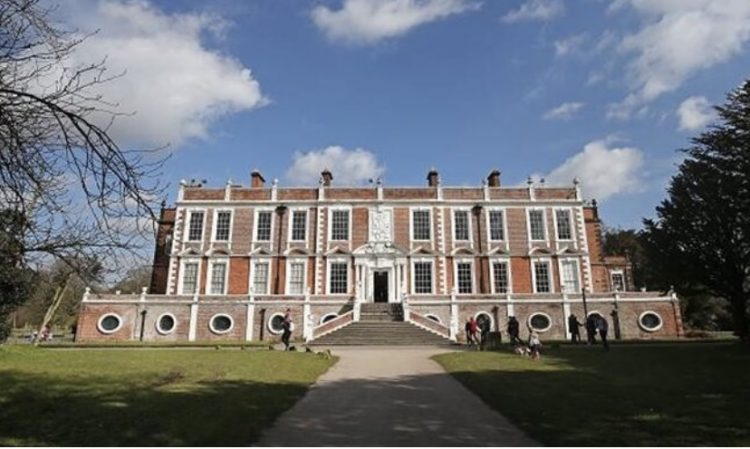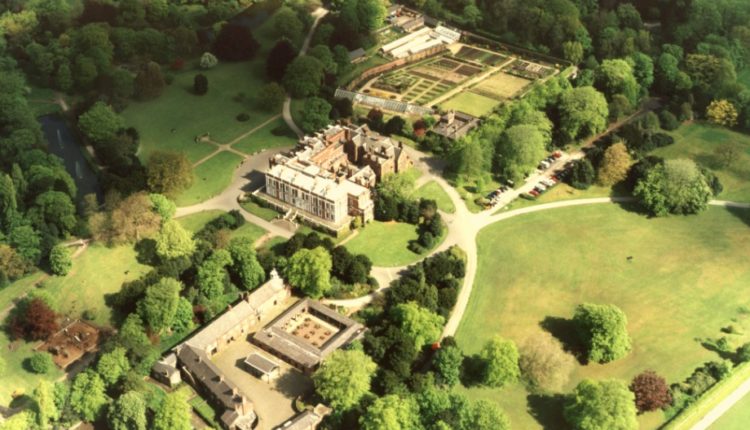Dating back to Tudor times, Croxteth Hall and country park is one of Liverpool’s most precious cultural assets and now the public have had their say on its future. Tony McDonough reports

Results of a public consultation on one of Liverpool oldest and most magnificent cultural assets has been published by the city council.
Grade II-listed Croxteth Hall was built in 1575 during the reign of Elizabeth I. Until 1972 it was occupied by the aristocratic Molyneux family. That year saw the death of Hugh Molyneux, 7th Earl of Sefton.
Molyneux had no blood heirs so the house and its grounds became a visitor attraction. Click here for the West Derby Society website to read more about the Molyneux family and their links with the stately home.
Some of the land was later used to create the Croxteth park housing estate. But 500 acres of beautiful woodland and parkland remains attracting around 600,000 visitors a year. In nearby West Derby Village there remains a well-preserved Elizabethan courthouse.
However, the house and grounds cost the city council more than £1m a year to maintain. At a time when the authority is under severe financial pressure it is looking at ways to increase revenues from the asset to help pay for its future upkeep.
A proposed deal with hotel operator Signature Living to transform the hall into a wedding and events venue was shelved in 2018.
Following a five-week public consultation which launched in August, 3,791 people took part to have their say on different options to generate income. The majority of people who filled in the survey (95%) were from the city and 59% of those are regular visitors.
The results show:
- Around 52% of people who responded say they use the park to exercise, and the second most popular reason is to spend time with family and friends.
- 68% of people said are in favour of the introduction of an environmentally friendly car park. They would also be happy to pay a nominal parking fee.
- For general parking, if fees were introduced, then £2 per visit received the most support. Spending £5 to park for an event was also considered acceptable.
- The most popular current facilities are the toilets and the on-site café/coffee van.
- Potential new commercial activities were welcomed across the board. People favoured ideas such as food and artisan markets, crazy golf, outdoor climbing, a miniature railway and a new café/bistro.
- More benches, new picnic areas, information noticeboards, dog walking guidelines and a review of opening times were other improvements that those surveyed would welcome.
- A suggested subscription to ensure the upkeep of the Victorian Walled Garden was not popular, with 2,119 not welcoming the idea.
The most mixed reaction came from the question asking whether a pet crematorium would be a good idea. It was almost an even split between those in favour (37%), those against (34%) and those unsure (29%).
As part of the survey, people were also asked to share their memories of the Hall and park.
One person said: “The first time I visited as a child I thought I was in the countryside. I couldn’t believe that it was just a few miles from home in the city. Whenever I’m in the park now, I can’t help but wonder at how lucky we are to have such a gem on our doorstep.”
Another added: “My walks during lockdown around the amazing park saved my mental health and were the brightest spot in my day. I loved finding new routes to take that I hadn’t realised were there.”
And another respondent said: “Happy memories with my daughter and late husband, late mum and late dog, soaking up the sunshine, walking round the hall and walled garden and having picnics in the park after visiting the estate farm.”
The results of the survey will now be fully explored, evaluated and costed up based on available funding to establish if they can be adopted. It will form part of the future strategy for Croxteth Hall and Country Park.


Assistant Mayor and Cabinet Member for Culture and Visitor Economy, Cllr Harry Doyle, said: “I live near my park and have very fond memories of spending time there – I loved the old Christmas market inside the hall – so it really resonated with me to read the recollections of other park users.
“It’s so important to have a greater understanding of what people really value about this city gem and what options they are willing to consider if it means generating an income which can be reinvested in the hall and gardens.”
Further engagement work with residents will take place focusing specifically on the introduction of the pet crematorium. The full results will be published on the city council’s official consultation page shortly.
Head of city assets, Angie Redhead, added: “This has been a really worthwhile process and thanks to this invaluable feedback, we are now in a position to look seriously about how we can breathe new life into the venue and its surrounding spaces.
“Having worked closely with the Croxteth team for a number of years, I know how passionate our park users are, but reading those memories really struck a chord with me and I’m pleased we’re bringing people along with us on this transformative journey.”

